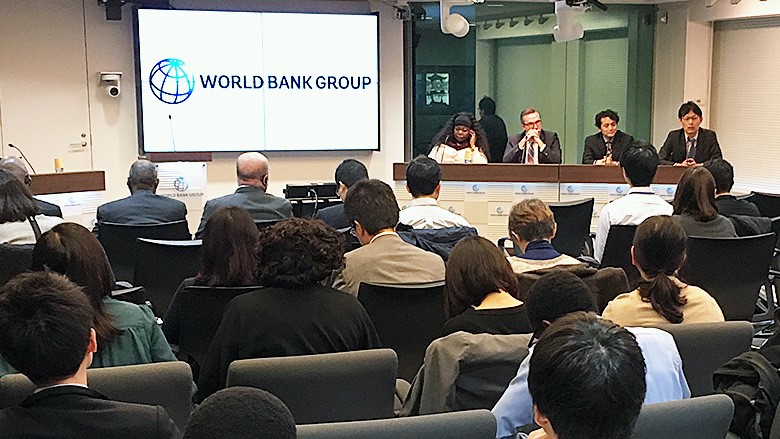On November 15, 2017 DFi partnered with World Bank Tokyo Office and organized the 10th seminar on “Japan Social Development Fund (JSDF): Investment in Human Capital in Tajikistan and Mozambique.” The sessions highlighted the achievements of two JSDF projects - Tajikistan Nutrition Scale-up and Mozambique: Maputo Peri Urban Sanitation by bringing together key stakeholders involved in the project to disseminate knowledge and share lessons. The event also included an exhibit of various crafts and items produced under JSDF-supported projects.
Each speaker shared the impact of the JSDF program on the beneficiaries, community groups and other stakeholders. The personal accounts of the beneficiaries brought vividly to light the impact of the JSDF grants on their livelihoods, families and communities.
The project beneficiaries expressed appreciation and gratitude to the Government and People of Japan for providing the JSDF funding which has made a transformative impact on their livelihoods.
The project presentations were followed by questions and answers between the Japanese constituents and the beneficiaries. The seminar was conducted in four languages – Russian, Portuguese, English and Japanese which is a testament to the global reach of Japan’s international development assistance.
Last Updated: Apr 27, 2018



